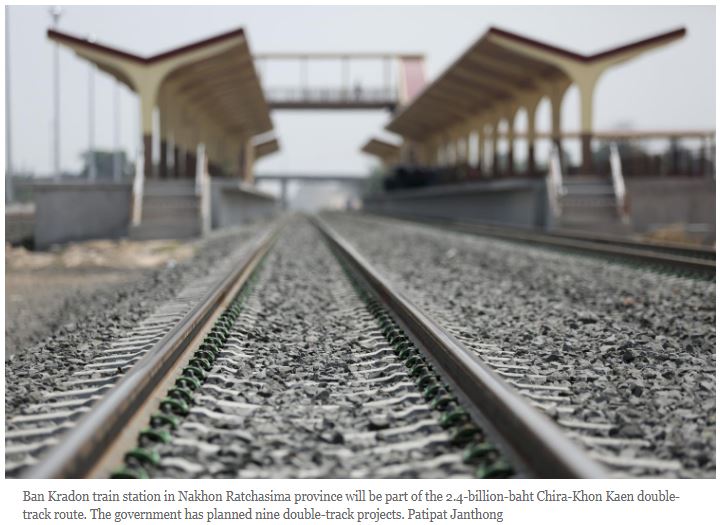Thailand: Cabinet lowers public debt ceiling
The cabinet on Tuesday approved a public debt management plan for fiscal 2020 that calls for the country’s average ratio of public debt to GDP to have a ceiling of 42.76%, below the 60% set by the Finance Ministry’s fiscal sustainability framework.
Public debt amounted to 6.9 trillion baht at the end of July this year, accounting for 41.45% of GDP.
The ratio was 41.9% in 2012, 41.2% in 2013, 43.3% in 2014 and 41-42% during 2015-18.
Rachada Dhanadirek, a deputy government spokeswoman, said the 2020 public debt management plan will cover new debt creation, existing debt management and debt repayment.
New debts in fiscal 2020 cost an estimated 894 billion baht, with 748.87 billion baht taken out by the government and 145 billion baht by state enterprises.
The government’s new debts will go towards managing treasury reserve liquidity and investing in infrastructure development, including the mass transit projects of the Mass Rapid Transit Authority such as the Purple Line, the Blue Line, the Green Line, the Orange Line and nine double-track rail projects.
State enterprises’ new debts will mainly stem from the National Housing Authority, the Provincial Waterworks Authority, the Provincial Electricity Authority, the State Railway of Thailand and Thai Airways International.
Ms Rachada said the government’s existing debt management plan worth 831 billion baht comprises government debts worth 601 billion baht and state enterprise debts worth 229 billion baht.
The government is committed to repaying 398 billion baht in fiscal 2020.
Regarding infrastructure, Ms Rachada said the cabinet on Tuesday acknowledged the draft contract for the third phase of Map Ta Phut port between the Industrial Estate Authority of Thailand (IEAT) and the winning bidder, a consortium led by PTT and Gulf Energy Development.
On June 11 this year, the cabinet approved the renegotiated contract for the third phase of Map Ta Phut port, one of five megaprojects under the Eastern Economic Corridor (EEC) scheme, encompassing the EEC Office, the IEAT and the winning consortium.
Upon renegotiation, the consortium has agreed to raise returns on investment for the project to 6.721 billion baht, up from 6.61 billion baht, while the IEAT plans to spend 710 million baht for annual land reclamations, down from a previous proposal of 720 million baht.
The IEAT said the third phase of the Map Ta Phut project is significant for the EEC. The project is expected to be completed in 2025.
Upon renegotiation, the winning bidder has agreed to raise return on investment for the project to 6.721 billion baht, up from 6.61 billion.
The IEAT plans to spend 710 million baht for annual land reclamation, down from a previous proposal of 720 million baht.
The project, located in Rayong, is expected to start construction in 2023 and begin operations in 2025.
Source: https://www.bangkokpost.com/business/1757614/cabinet-lowers-public-debt-ceiling


 English
English




